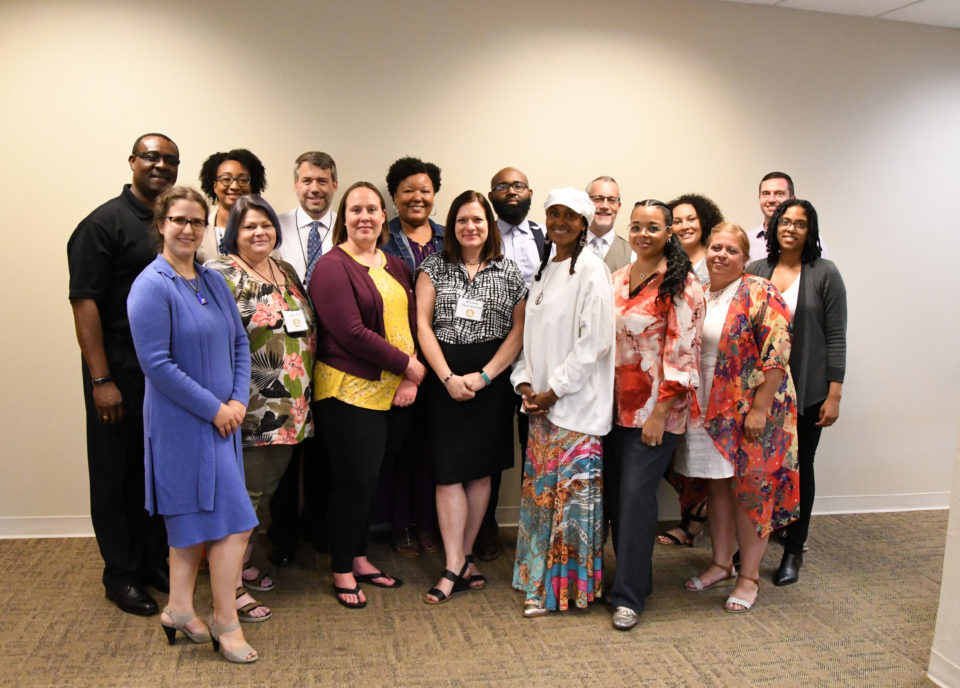Extension Invests in Preparing the Next Generation of Community Leaders
In the last ten years, Indianapolis has embarked on a positive economic path with initiatives such as the “quality of life” plans, “great places” initiatives “neighborhood investment plan,” “inclusive growth strategies,” light rail transit and combating structural racism. Most community development practitioners agree that for the long-term success of a flourishing community, a pipeline of emerging leaders is required to help build and secure a competitive, inclusive and thriving advantage. The Community Economics and Leadership Program (CELP) equips Millennials and up-and-coming managers and supervisors from government, community and private organizations with broader understanding of these community contexts, to maximize and leverage local initiatives including exploring foundational principles of community economics and the leadership skills needed to create and sustain growth.
WHAT WE HAVE DONE:
A Program Area Advisory Committee (PAAC) guided and provided feedback on program development. They helped the educator determine community priorities, and skills needed to address pressing issues and leadership gaps in Marion County. Particularly, they influenced the inclusion of soft skills such as problem-solving, accountability and learning through an equity lens. The learning sessions conducted biweekly over four months included three topics borrowed and expanded from the Purdue Community Leadership Development program.
Eighteen participants from 15 community organizations, city government agencies and nonprofit agencies participated in and graduated from the 2019 program. The nine-sessions in the 2019 curriculum include 1) Personality influences on thinking, behavior and relationship, 2) Group dynamics and roles, 3) Design thinking for community development practitioners, 4) Inclusive growth and the future of work, 5) Financial intelligence and business development, 6) How to hold people accountable, 7) Facilitative leadership, 8) Collaboration and consensus-building, and 9) design project presentations.
The educator created a “Slack” and Google collaboration folder for pre-class assignments, correspondence and coaching. The program received a $5,000 sponsorship from First Internet Bank. Individuals and teams of graduates created and presented a community or workplace design project that they will continue to work on after completing the program. A follow-up survey will measure new leadership positions acquired and how design projects are influencing the Indianapolis community.
IMPACT:
The follow-up survey was taken six months after the program ended and exhibits the success of the program by having excellent feedback given by the participants. Responses from the survey included the following:
- Ninety-seven percent of participants indicated the content of the program matched their expectations.
- Ninety-nine percent rated the quality of instruction good to excellent.
- Ninety-eight would recomment this class to a friend of colleague.
- Eighty-nine percent indicated that their knowledge about the topics increased as a result of the training.
All the participants completed and presented final individual or team projects based on a community challenge. These challenges were centered upon using Design Thinking and Influencer model principles. Over 95 percent of the graduates have experienced, practiced and designed a community challenge and have indicated that they will use the human-centered skills and tools to facilitate community solutions. Of all the graduates, over 60 percent have stepped up to leadership roles and are guiding important community initiatives in Indianapolis.
The Indianapolis City-County Council recognized the CELP program for innovation, civic leadership and economics education with a Special Resolution at the May 2019 General Council meeting. CELP graduates received Congressional Recognition from the US Representative for the Seventh District, Congressman Andre Carson. Furthermore, the CELP program received National Second Place and First Place North-Central region for excellent community development programming at the 2019 National Association for Community Development Extension Professionals Conference.
TESTIMONIALS:
“[The] CELP program has improved my decision-making and leadership skills because I have gained a deeper understanding of community economics, the business context and the collaboration needed to make things work.”
“I have learned to design my projects by conducting a focus group, learning the perspective of the end-user and then design to meet their needs.”
“I feel confident, more capable, and better equipped to take on new challenges and enhance economic prosperity in my neighborhood.”
“I think I am equipped with skills to generate solutions to community challenges because I know how to create purpose, scope and determine deliverables before I begin any project.”
“Practicing in small groups was helpful, and I learned very tangible skills for conducting all types of conversations that will be useful to me in all areas of life going forward.”
George Okantey is a Purdue Extension Community Development educator in Marion County. He can be reached at okantey@purdue.edu.




